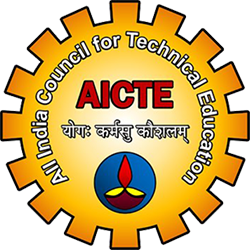
Technology has become essential for efficient supply chain and logistics management in today's continuously changing corporate landscape. Advanced technology solutions have transformed supply chain management for enterprises, resulting in improved efficiency, lower costs and greater customer satisfaction. The PGDM with Supply Chain is crucial in preparing upcoming corporate executives with the essential expertise and understanding to successfully navigate this era of technological change.
Logistics and Supply Chain Management: An Evolution
Logistics management and supply chain management are used to entail several labour-intensive manual procedures that otherwise are prone to mistakes, delays and inefficiencies. Nevertheless, the emergence of technology has introduced a new period characterised by automation and decision-making, based on data. Technologies such as the Internet of Things (IoT), Artificial Intelligence (AI), Big Data Analytics and Blockchain have drastically transformed the supply chain environment.
For instance, IoT devices allow real-time supply chain tracking and monitoring. Transparency is maintained, theft or loss is reduced and proactive problem solving is made possible. Artificial intelligence (AI) and machine learning algorithms improve the accuracy of demand forecasts, optimise inventory levels and simplify manufacturing schedules. Big Data Analytics allows firms to extract valuable insights from large volumes of data, empowering them to recognise patterns, anticipate disruptions and make well-informed choices. Blockchain technology guarantees the authenticity and protection of transactions, establishing an unalterable record of the whole supply chain process.
Insights from a PGDM Programme
A PGDM programme focuses on technological breakthroughs and equips students with the skills to use them efficiently in their professional lives. The programme specifically aims to provide students with a comprehensive understanding of the entire supply chain process, along with hands-on experience using state-of-the-art technical tools.
1. Curriculum Focus: The PGDM programme curriculum encompasses a wide range of topics related to logistics and supply chain management, such as procurement, manufacturing, distribution and reverse logistics. It highlights the significance of technology in each of these domains. The programme includes essential courses in Supply Chain Analytics, Logistics Management and Information Technology in Supply Chains. These courses emphasise the significance of data analysis, automation and digitalisation in enhancing supply chain performance.
2. Practical Exposure: A PGDM’s practical exposure is one of its main advantages. Students participate in real-world projects, internships and industrial collaborations, enabling them to apply academic principles in actual situations. They acquire proficiency in using enterprise resource planning (ERP) systems, warehouse management systems(WMS) and transportation management systems(TMS). Understanding the practical application of technology to tackle complex supply chain challenges is crucial.
3. Sessions by Industry Experts: This programme has guest lectures and workshops delivered by leaders from the industry. These workshops provide fundamental information concerning trends and modern technology in the supply chain industry. Experts from industry share their first-hand experiences and also provide discussions on cases, stressing the right use of technology. These enable the learner to link theory with practice, to optimise the opportunity available in the modern corporate world.
4. Research and Innovation: Research-based learning forms a major component of a PGDM program. Technology applications in the management of supply chain is an area of research that students are encouraged to undertake for the development of new ideas and added ethics. They explore future concepts such as last-mile delivery by drones, self-driving vehicles for transportation logistics and how e-commerce is disrupting conventional supply chain strategies. This research cultivates a culture of creativity and equips students to become influential thinkers in their respective professions.
The Future of Supply Chain and Logistics Management
Technology promises a bright future for logistics management and supply chain. Integration of sophisticated technology will boost efficiency, sustainability and resilience. Adopting these technologies will help companies react to shifting market situations and satisfy rising client demands.
PGDM with supply chain and logistics is leading this change. These programmes prepare learners to be industry leaders by teaching them how to use technology. Graduates of these programmes can manage traditional supply chain operations and drive digital change in their organisations.
Conclusion
It is a given that technological advancements have played a crucial role in supply chain and logistics management. PGDM courses, as offered by Sparsh Global Business School among others, play a vital role in preparing future leaders of tomorrow to handle and negotiate through modern-day technological challenges in the supply chain industry.
FAQ’s
1. How do industry experts contribute to PGDM program of Management?
Industry experts give guest lectures and seminars on the latest trends and technology in PGDM programmes. These workshops connect academic learning to real-world practices, preparing students for current business expectations.



